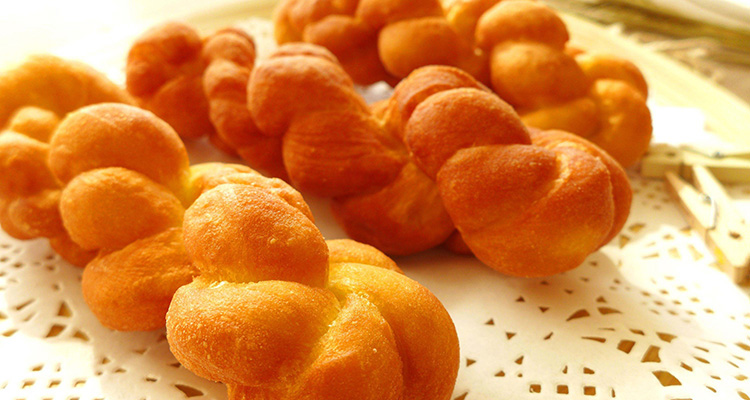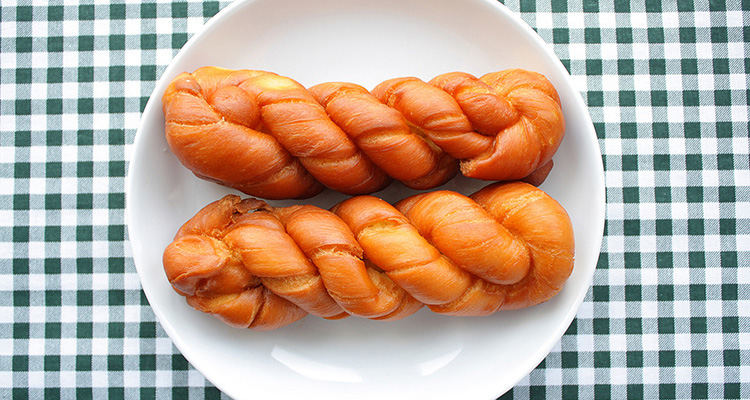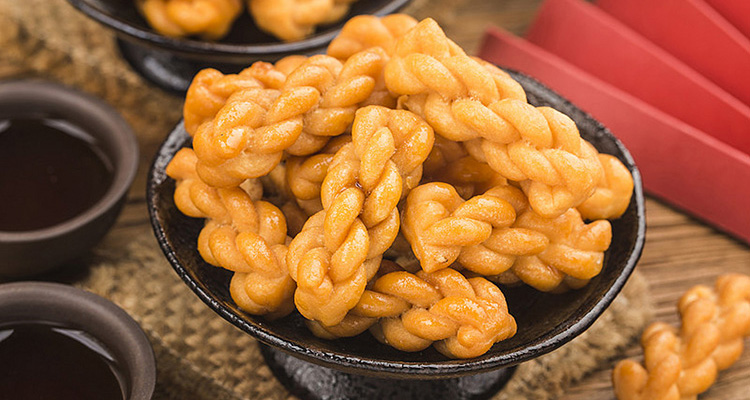Mahua — A Crispy Beijing Halal Fried Dough Twist You Must Try
Golden Mahua (Chinese Dough Twists) spin in hot oil, releasing a tempting aroma. These are not just deep-fried snacks—they’ve been the classic tea-time partner in Beijing for centuries. Crispy on the outside and soft inside with a hint of sweetness and milk flavor, Mahua are beloved by locals and a star item among Beijing’s halal pastries.
1. Origin and History
Mahua dates back to the Southern and Northern Dynasties as a Buddhist vegetarian food. It was brought to Beijing by the Hui people during the Yuan Dynasty, gaining popularity in the Niujie Muslim area. By the Qing Dynasty, it became a must-have tea snack, loved for its long shelf life and portability. Today, it’s an essential part of Beijing’s snack culture.
2. Cultural Significance
For Beijingers, Mahua symbolizes old teahouse culture. Older generations always paired it with jasmine tea, representing lasting bonds. Families serve Mahua during Spring Festival to “twist in good luck,” reflecting the city’s laid-back lifestyle.
3. Key Ingredients
Authentic Mahua uses high-gluten flour from the Hetao region for crispness. Fresh peanut or rapeseed oil is crucial, and temperature control matters. Traditional recipes add milk powder, eggs, and a bit of sugar, while modern versions include flavors like pepper-salt and sesame.

4. How It’s Made
The dough is rolled into strips, folded, and twisted into spirals, then deep-fried at 160°C until golden. Masters gently turn them during frying and drain them upright on racks so every side stays crispy.
5. Flavor and Texture
Mahua’s charm lies in its crisp shell that cracks with a “crunch,” while the inside stays soft and airy. The rich blend of milk and wheat flavor is sweet but not heavy, making it hard to stop at just one.
6. How to Eat
Enjoy Mahua with strong jasmine tea—dip it in for a perfect balance of sweet and fragrant. Locals also soak it in Douzhi (fermented mung bean drink) for a salty-sweet mix. Chilled Mahua becomes even crunchier.

7. Where to Try
Popular spots include Huguosi Snacks (classic sweet), Ziguangyuan (pepper-salt), Daoxiangcun (mini packs), and Niujie Halal Supermarket (freshly fried). They usually cost about 5–15 RMB per bag; smaller packs stay crisp longer.
8. Travel Tips
“Mahua” is often called “Chinese Doughnut” in English. Eat within 2 hours for peak crunch. Traditional recipes are vegetarian-friendly. Store in airtight bags for 3 days, or re-crisp in a 150°C oven for 5 minutes if they get soft.
Let this golden, crunchy Chinese dough twist brighten your Beijing trip! More than just a snack, it’s an edible piece of art. Watching a master twist dough into perfect spirals shows true craftsmanship—so don’t forget to bring a few packs home as a delicious memory of Beijing.


